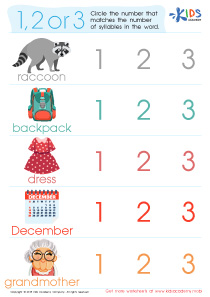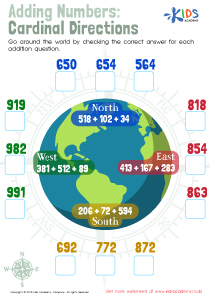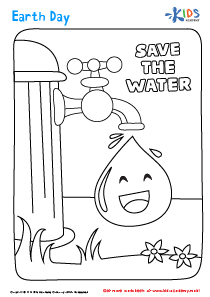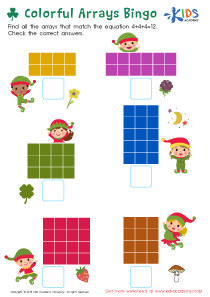Foundational Reading Lessons | Early Phonics and Phonological Awareness
32 results
Introduce your little ones to the captivating world of language with our Early Phonics and Phonological Awareness Lessons for Kindergarten children. Designed for a comprehensive skill-building experience, these interactive worksheets, intriguing educational videos, and engaging assessment quizzes will engage and excite young minds. Our expertly crafted curriculum focuses on developing essential phonetic recognition, sound blending, and word formation skills. Watch as your child's confidence and reading abilities soar to new heights, empowering them for a lifetime of fruitful learning. Join us today and unlock the door to language mastery with our Early Phonics and Phonological Awareness Lessons.
In the journey of education, laying a strong foundation in early phonics and phonological awareness is crucial for children, especially those in kindergarten. This period of a child's life is characterized by rapid brain development, making it the perfect time to introduce them to these foundational concepts.
Early phonics and phonological awareness lessons provide children with interactive worksheets, educational videos, and assessment quizzes, all designed to enhance their understanding of language sounds and their relationships. Let's delve into how these lessons can be incredibly helpful to kids in their studies.
Firstly, early phonics lessons empower children to grasp the building blocks of reading and writing. By focusing on individual sounds and letter-sound correspondences, students not only begin to recognize the sounds that make up words, but they also learn to manipulate and blend these sounds together. This skill, known as phonemic awareness, is vital for developing strong reading and spelling abilities.
Through interactive worksheets, kids engage in activities that involve identifying and matching letters with their corresponding sounds. By visually representing these sounds and linking them to specific letters, children can internalize these connections and start building a strong foundation for their reading journey.
Furthermore, incorporating educational videos into phonics lessons can further enhance a child's understanding. Videos visually reinforce concepts such as letter sounds, phoneme segmentation, and blending. These visual aids stimulate the child's learning experience, making the process more engaging and memorable.
Additionally, early phonics and phonological awareness lessons foster language development and vocabulary acquisition. By actively exploring the sounds of language, children develop a more profound understanding of how words work and expand their vocabulary. As they become more adept at recognizing sounds, they become better equipped to decode unfamiliar words and understand their meanings in context.
The assessment quizzes that are a part of these lessons play a crucial role in monitoring a child's progress. These quizzes allow educators and parents to gauge a child's understanding and identify areas that may require additional attention. By assessing individual strengths and weaknesses, teachers can tailor their instruction to suit the specific needs of each child, promoting optimal learning outcomes.
Moreover, the benefits of early phonics and phonological awareness lessons extend far beyond reading and writing. These foundational skills have a direct impact on a child's overall cognitive development. Research has shown that phonological awareness positively correlates with improved memory, attention, and problem-solving skills. By engaging in these lessons, children sharpen their auditory discrimination abilities, auditory memory, and attention to detail, providing them with a strong cognitive toolkit for future academic success.














